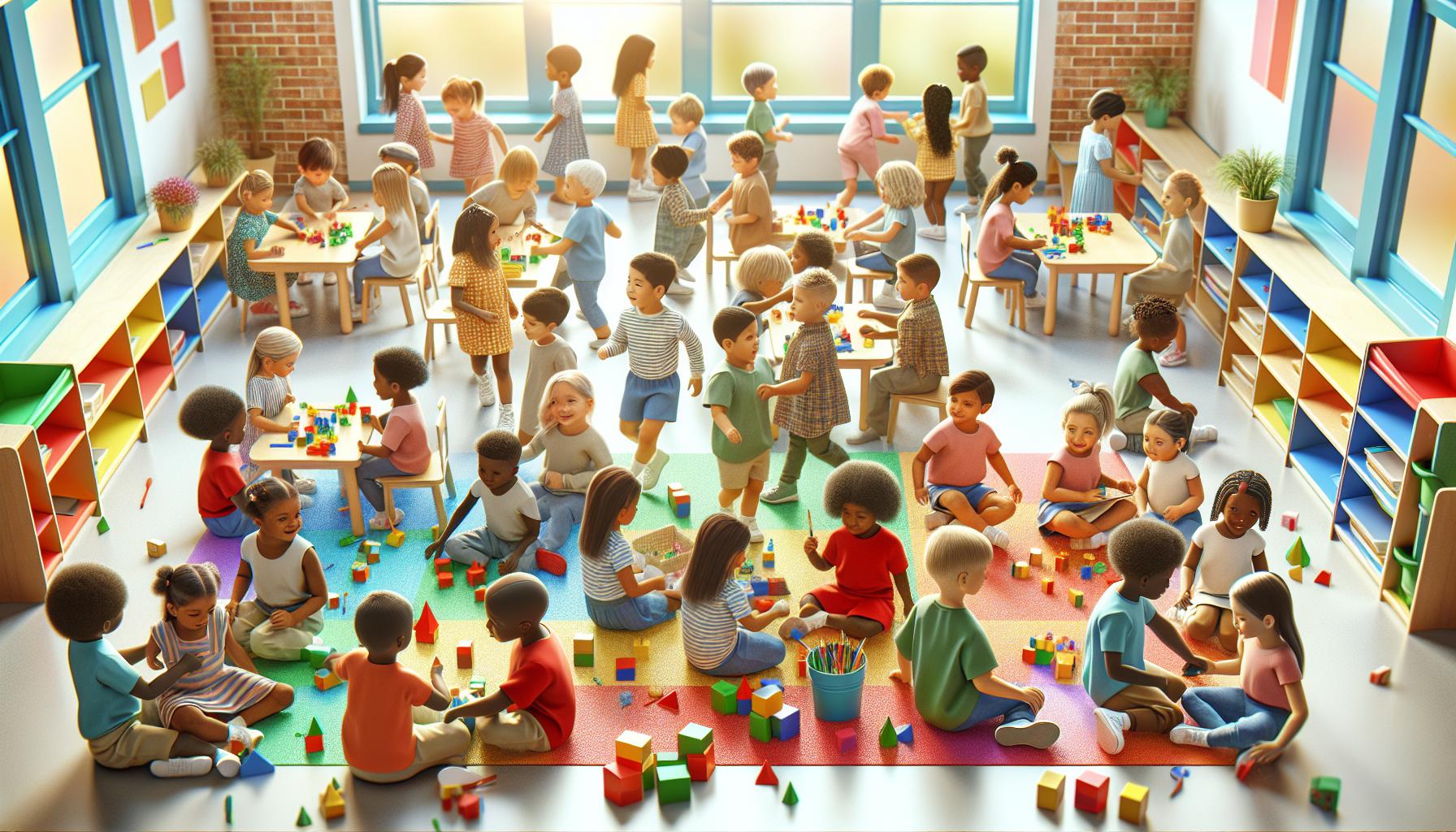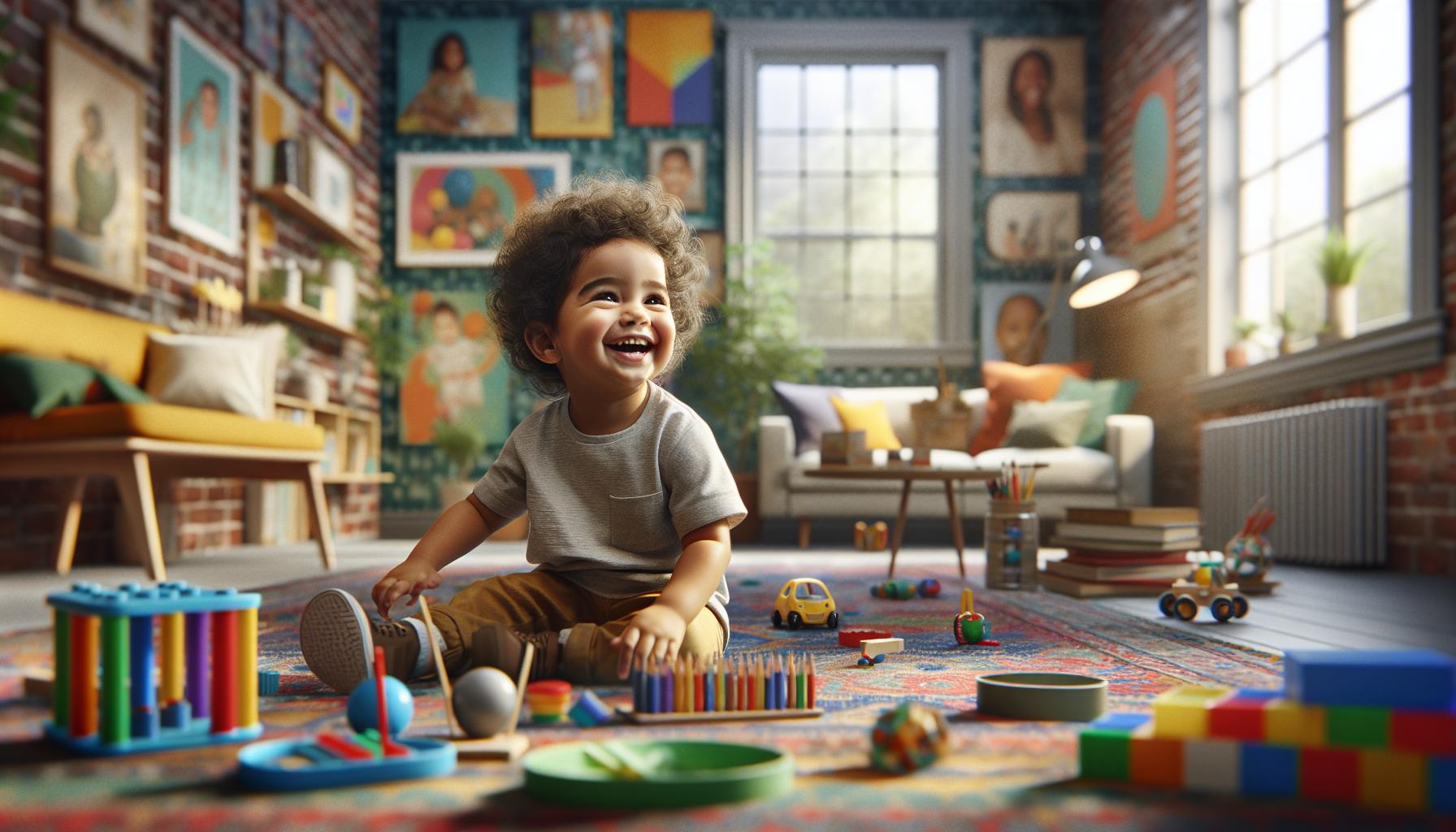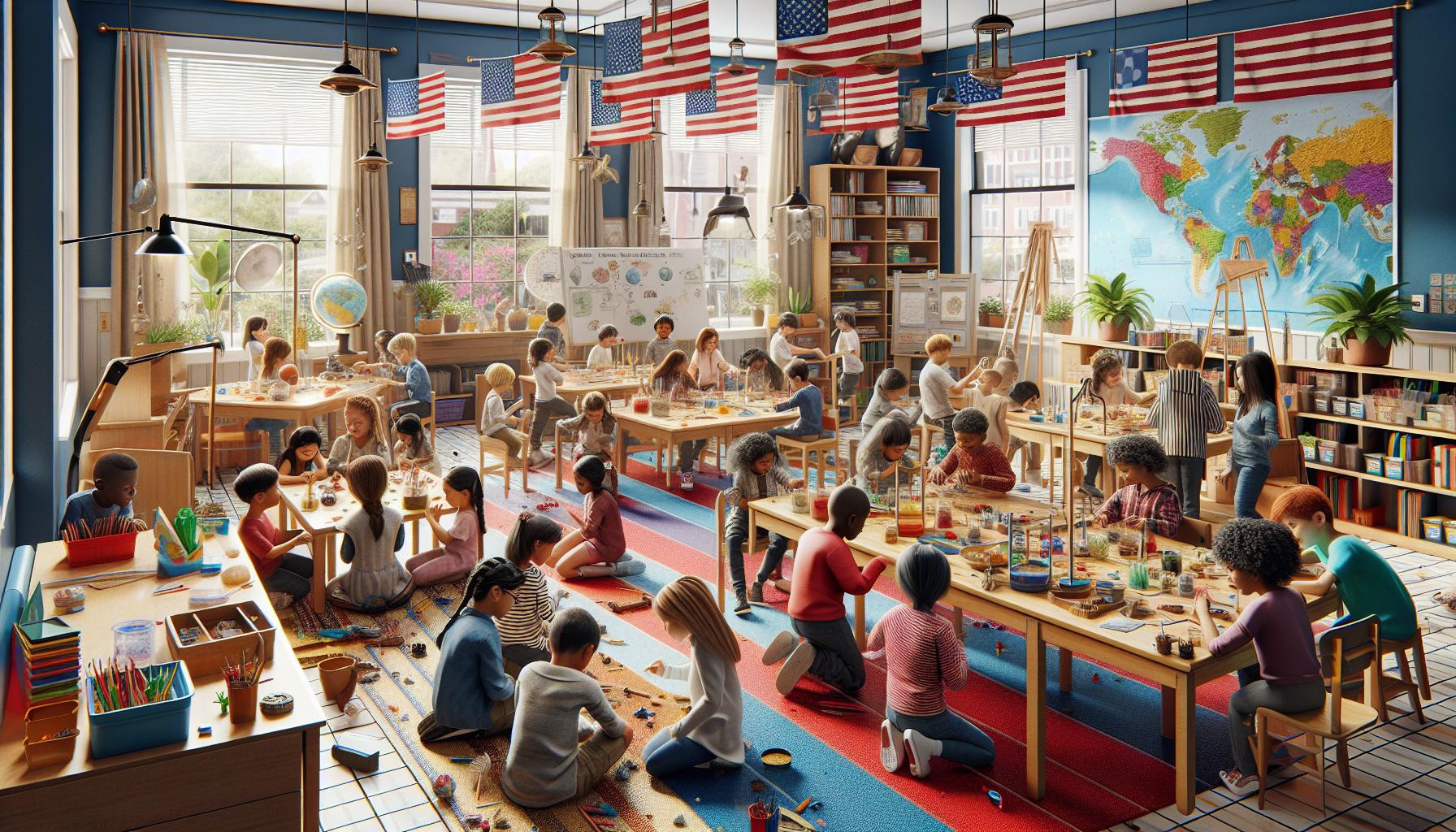Child development and education are intricately linked, shaping the future of every child. From the moment a child is born, their brain begins to develop at an astonishing rate, laying the foundation for learning, behavior, and emotional well-being. Understanding this critical period helps parents and educators create environments that nurture growth and foster curiosity.
As children progress through various stages of development, the role of education becomes increasingly vital. It’s not just about academics; it’s about cultivating social skills, emotional intelligence, and resilience. By recognizing the unique needs of each child, caregivers can tailor their approaches to support holistic development, setting the stage for lifelong success.
Key Takeaways
- Holistic Development is Essential: Child development encompasses physical, cognitive, emotional, and social growth, underscoring the need for a well-rounded educational approach.
- Importance of Early Childhood Education: Engaging children in structured early education sets the foundation for language, creativity, and social skills, leading to improved academic outcomes.
- Play-Based Learning is Crucial: Active play fosters cognitive and social skills, allowing children to learn through exploration and interaction, essential for resilience and adaptability.
- Environmental Factors Matter: A child’s development is significantly impacted by their home environment and socioeconomic status, emphasizing the need for supportive and nurturing surroundings.
- Educational Approaches Vary: Montessori and progressive educational methods prioritize individualized learning and critical thinking, showing benefits in social and cognitive development compared to traditional schooling.
- Tailored Caregiving is Key: Recognizing individual differences in development paves the way for personalized educational strategies that cater to each child’s unique needs.
Child Development And Education
Child development involves a complex interplay of physical, cognitive, emotional, and social growth. Education plays a crucial role in supporting this development, fostering skills that children will use throughout their lives.
Key Concepts of Child Development
- Holistic Development: Recognizes the integration of physical, cognitive, emotional, and social growth in children.
- Nurturing Environments: Encourages safe and supportive spaces that promote exploration and learning.
- Individual Differences: Acknowledges that children develop at varying rates and in unique ways based on their experiences.
- Play-Based Learning: Highlights the importance of play in fostering creativity, problem-solving skills, and social interactions.
- Resilience Building: Focuses on helping children develop coping skills and emotional strength to handle challenges.
- Infancy (0-2 years): Involves rapid physical growth and basic motor skills development. Attachment to caregivers is crucial during this stage.
- Early Childhood (3-6 years): Features significant cognitive and language development. Social interactions with peers begin to shape interpersonal skills.
- Middle Childhood (7-11 years): Includes refining motor skills and cognitive abilities. Academic learning becomes more structured, and children develop greater independence.
- Adolescence (12-18 years): Marked by emotional and social exploration. Identity formation and peer relationships take precedence as cognitive thinking matures.
Understanding these key concepts and stages enables caregivers and educators to foster an environment that promotes successful child development and education.
The Role of Education in Child Development

Education plays a crucial role in shaping a child’s overall development, especially during formative years. It fosters essential skills and knowledge while promoting emotional and social growth.
Early Childhood Education
Early childhood education focuses on teaching children from birth to age 6. This stage is critical for brain development and cognitive growth. Quality early education programs enhance language skills, foster creativity, and support social interactions. Research indicates that children who participate in structured early childhood programs display improved academic outcomes in later years. Such programs often include activities that encourage exploration and problem-solving, tailored to meet individual learning styles.
Importance of Play in Learning
Play serves as a fundamental aspect of a child’s learning process. Active engagement in play boosts cognitive, physical, and social skills. Through play, children learn to communicate, collaborate, and navigate relationships with peers. The National Association for the Education of Young Children (NAEYC) stresses that play-based learning provides meaningful ways for children to encounter concepts like cause and effect and critical thinking. This type of learning allows for trial and error, fostering resilience and adaptability—essential traits for future success.
Impact of Environment on Child Development

The environment significantly shapes child development, influencing physical, cognitive, and emotional growth. A child’s surroundings, including family dynamics and socioeconomic conditions, play crucial roles in their overall development.
Family Influences
Family influences establish foundational aspects of a child’s development. Positive interactions with caregivers foster secure attachments, which are essential for emotional well-being. A nurturing home environment promotes language acquisition and social skills. For instance, parents who engage in conversations and reading with their children support cognitive growth and literacy development. Conversely, negative interactions or lack of engagement can hinder emotional and social progress, leading to potential challenges in future interactions.
Socioeconomic Factors
Socioeconomic factors exert a profound impact on child development. Families with higher socioeconomic status often access better educational resources, healthcare, and extracurricular activities. Research indicates that economic stability correlates with improved academic performance and social competencies. In contrast, children from lower socioeconomic backgrounds may experience stressors such as food insecurity and limited access to quality education, which can adversely affect cognitive and emotional development. Addressing these disparities is vital for fostering equitable opportunities for all children.
Educational Approaches and Their Effectiveness

Various educational approaches contribute uniquely to child development and education. Understanding these methods enhances the ability to adopt effective strategies that cater to children’s individual needs.
Montessori Method
The Montessori Method emphasizes child-led learning, focusing on fostering independence and self-direction. It utilizes sensory materials and guided discovery, promoting hands-on exploration. In this method, children engage in activities at their own pace, allowing natural curiosity to drive their learning. Evidence shows that children in Montessori environments often excel in cognitive, social, and emotional aspects compared to peers in traditional settings. Research from the American Educational Research Association indicates that Montessori students frequently exhibit higher gains in mathematics and reading, showcasing the effectiveness of this approach.
Traditional vs. Progressive Education
Traditional education often follows a structured curriculum, prioritizing rote memorization and standardized testing. This approach may provide essential foundational knowledge but can limit creative thinking and problem-solving skills. In contrast, progressive education emphasizes experiential learning, critical thinking, and collaboration. This method encourages students to explore subjects through projects and real-world experiences. Studies suggest that children in progressive education settings develop better social skills and exhibit higher engagement levels. A comparative review published in the Journal of Educational Psychology highlights that progressive education tends to produce more resilient learners who are better equipped to tackle complex challenges.
Embracing a mix of these educational approaches can enhance children’s developmental outcomes, ensuring a balance between foundational knowledge and critical life skills.
Focus on Holistic Developmen
Child development and education are intricately linked, shaping a child’s future in profound ways. By fostering nurturing environments and recognizing individual needs, caregivers can significantly enhance a child’s growth. The focus on holistic development, play-based learning, and emotional intelligence equips children with essential skills for life.
As society continues to evolve, addressing socioeconomic disparities and implementing varied educational approaches will be vital. By embracing both traditional and progressive methods, educators can offer balanced experiences that promote resilience and adaptability. Ultimately, prioritizing child development within educational frameworks ensures that every child has the opportunity to thrive and succeed in an ever-changing world.